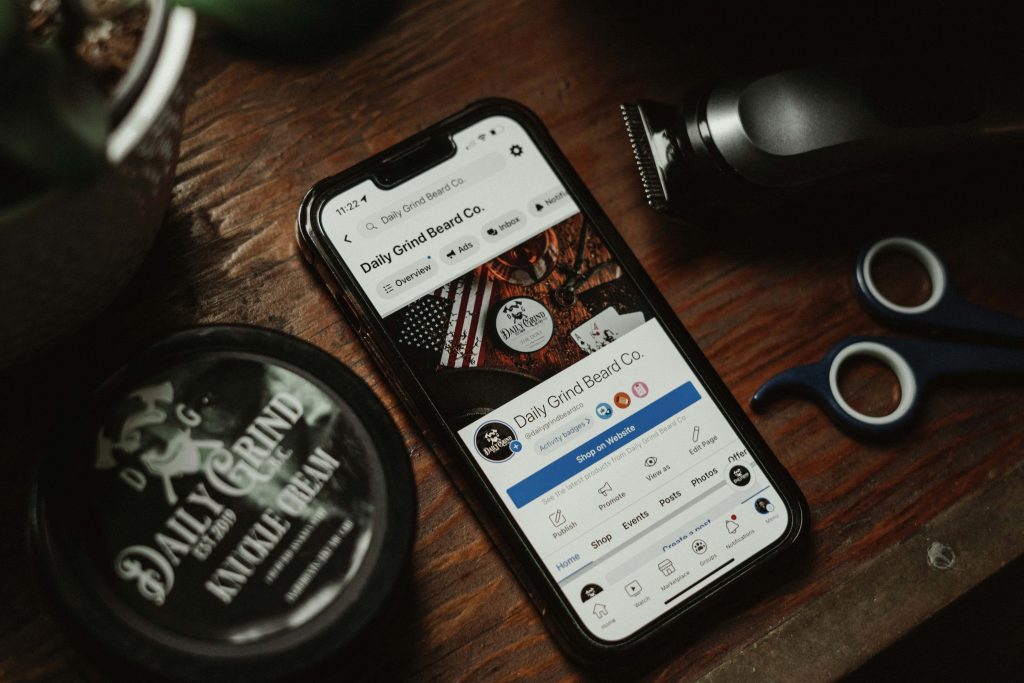
19 Sep Social Media for Authors and Promoting Literary Works
Social Media for Authors
In today’s digital landscape, social media has transformed the way authors interact with readers and promote their works. No longer confined to traditional marketing methods, authors can now leverage platforms like Instagram, X, Facebook, TikTok, and Goodreads to build a robust online presence. This shift has opened up new avenues for connecting with audiences, showcasing creativity, and driving book sales. Social media not only helps authors reach a broader audience but also fosters direct engagement with readers, making it an indispensable tool for literary promotion. This article delves into how authors can harness the power of social media to amplify their reach and elevate their literary careers.

Understanding the Social Media Landscape
Popular Social Media Platforms for Authors
- Instagram: With over 2 billion active users, Instagram’s visual-centric platform is perfect for authors who want to share visually appealing content. Features like Stories, Reels, and IGTV allow authors to post engaging updates, book trailers, and behind-the-scenes glimpses of their writing journey. Instagram’s algorithm favors high engagement, making it ideal for interactive content such as polls, quizzes, and live Q&A sessions.
- X: Known for its fast-paced, real-time interactions, X offers a dynamic environment for authors to share updates, participate in literary conversations, and connect with readers through hashtags and trending topics. The platform’s character limit encourages concise and impactful messaging, making it suitable for book announcements, writing tips, and engaging in literary debates.
- Facebook: With its diverse user base spanning various age groups and interests, Facebook provides multiple tools for authors. Authors can create dedicated pages to share updates, host events, and join genre-specific groups to connect with potential readers. Facebook Live enables real-time interaction with followers, while Facebook Ads offers targeted advertising options to reach specific demographics.
- TikTok: TikTok’s short-form video content has rapidly gained popularity, especially among younger audiences. Authors can use TikTok to create engaging book-related videos, such as by reading excerpts, participating in book challenges, and sharing creative content that resonates with users. The platform’s algorithm rewards content that generates high engagement, making it a valuable tool for viral marketing.
- Goodreads: As a platform specifically designed for book lovers, Goodreads allows authors to interact directly with their target audience. Authors can create author profiles, engage with reader reviews, run giveaways, and participate in book discussions. Goodreads also provides valuable insights into reader preferences and trends.
Identifying the Target Audience and Choosing the Right Platforms
To maximize the effectiveness of social media efforts, authors must first identify their target audience. Consider factors such as age, gender, interests, and reading habits to determine which platforms align best with your audience. For example:
- Young Adult (YA) Readers: TikTok and Instagram may be more effective due to their visual and interactive nature.
- Genre-Specific Audiences: Goodreads and Facebook groups offer targeted engagement opportunities for niche genres.
- Professional Networking: X and LinkedIn can be useful for connecting with industry professionals and other authors.
By aligning your social media strategy with your audience’s preferences, you can create more impactful and relevant content.
Creating Engaging Author Profiles and Bios
An engaging author profile serves as the foundation of your social media presence. Craft bios that capture your unique voice and showcase your literary achievements. Include key information such as your genre, notable works, and personal interests. Utilize high-quality profile and cover images that reflect your brand, and ensure your contact information and links to your website or book retailer pages are up-to-date.
Building an Author Brand
Developing a Strong Author Persona
A strong author persona helps you connect with readers on a personal level. This persona should be a reflection of your writing style, themes, and personality. Share personal anecdotes, writing inspirations, and behind-the-scenes moments to create a relatable and authentic image. Your persona should resonate with your target audience and differentiate you from other authors.
Creating Consistent Content That Aligns with the Author’s Brand
Consistency in content creation is crucial to building a recognizable author brand. Develop a content strategy that aligns with your brand values and audience interests. This might include a mix of promotional posts, personal insights, and interactive content. Use a content calendar to plan and schedule posts, ensuring regular updates that keep your audience engaged.
Utilizing Visuals and Storytelling to Captivate the Audience
Visual content is powerful in capturing attention and conveying your brand’s message. Invest in professional photos, custom graphics, and visually appealing layouts that enhance your posts. Incorporate storytelling techniques to create compelling narratives around your books and writing journey. Share excerpts, character backstories, and thematic insights to immerse your audience in your literary world.

Content Creation Strategies
Types of Content Suitable for Different Platforms
- Instagram: Share book covers, author photos, quote graphics, and stories featuring updates and behind-the-scenes content. Reels can showcase book trailers or engaging writing tips.
- X: Post brief updates, participate in relevant hashtags, and share links to blog posts or articles. Use threads to provide in-depth content or engage in literary conversations.
- Facebook: Create event pages for book launches, join genre-specific groups, and share longer posts or articles. Facebook Live can be used for virtual book readings or Q&A sessions.
- TikTok: Produce creative videos such as book reviews, reading challenges, and short skits related to your books. Use trending sounds and hashtags to increase visibility.
- Goodreads: Engage with readers through reviews, run book giveaways, and participate in book discussions. Update your author profile with new releases and events.
Leveraging User-Generated Content
User-generated content (UGC) can amplify your reach and build community. Encourage readers to share their reviews, photos of your books, and fan art. Feature this content on your own profiles to show appreciation and foster a sense of connection with your audience. UGC not only provides authentic endorsements but also generates buzz around your books.
Creating Shareable Content to Increase Reach
To create shareable content, focus on producing posts that resonate with your audience and evoke strong reactions. This could include thought-provoking quotes, engaging visuals, and interactive elements such as polls or challenges. The more engaging and relatable your content is, the more likely it is to be shared, expanding your reach and visibility.
Engaging with the Audience
Building a Community of Readers
Fostering a sense of community encourages readers to feel connected to you and your work. Create spaces for interaction, such as dedicated Facebook groups or interactive Instagram Stories. Host virtual book clubs, writing workshops, or live chats to facilitate discussions and build a loyal following.
Interacting with Followers Through Comments, Likes, and Messages
Engage actively with your audience by responding to comments, liking posts, and answering direct messages. This interaction demonstrates that you value your readers’ input and fosters a positive relationship. Personal responses and genuine engagement can enhance reader loyalty and encourage continued support.
Responding to Feedback and Questions
Address feedback and questions from readers with professionalism and appreciation. Constructive criticism can provide valuable insights into how your work is perceived, while positive feedback can reinforce your connection with your audience. Responding promptly and thoughtfully to queries helps build trust and credibility.
Collaborating with Other Authors and Influencers
Collaboration can expand your reach and introduce you to new audiences. Partner with other authors for joint promotions, co-hosted events, or collaborative content. Engaging with influencers who align with your genre or themes can also enhance your visibility and attract new readers.

Promoting Literary Works
Effective Book Launch Strategies on Social Media
A well-planned book launch can create a significant buzz and drive sales. Start by building anticipation through teasers, countdowns, and exclusive previews. Host virtual launch events, such as live readings or Q&A sessions, to engage with your audience. Collaborate with influencers and other authors to amplify your launch efforts and reach a broader audience.
Utilizing Paid Advertising Options
Paid advertising can help boost your book’s visibility and reach specific demographics. Platforms like Facebook and Instagram offer targeted ad options, allowing you to define your audience based on interests, location, and behavior. Track the performance of your ads to optimize your spending and maximize ROI.
Tracking and Analyzing Social Media Performance
Regularly monitor your social media performance using the analytics tools provided by each platform. Key metrics to track include engagement rates, follower growth, and post reach. Analyzing this data helps you understand what content resonates with your audience and guides your future social media strategies.
Overcoming Challenges and Best Practices
Common Challenges Faced by Authors on Social Media
Authors may face challenges such as managing time effectively, dealing with negative feedback, and maintaining a consistent posting schedule. Address these issues by setting realistic goals, creating a content calendar, and focusing on positive interactions. Use social media management tools to streamline your efforts and stay organized.
Time Management Tips for Maintaining a Consistent Presence
Effective time management is essential for maintaining a strong social media presence. Allocate specific times for content creation, posting, and engagement. Utilize scheduling tools to automate posts and ensure consistency. Prioritize tasks and set aside dedicated time for social media activities to avoid burnout.
Measuring the ROI of Social Media Efforts
To assess the return on investment (ROI) of your social media efforts, evaluate the impact on book sales, engagement levels, and overall brand growth. Track metrics such as conversion rates, click-through rates, and engagement metrics. Use this data to refine your strategies and focus on what delivers the best results.

CONCLUSION
Social media has emerged as a powerful tool for authors to connect with readers, build a personal brand, and promote their literary works. By understanding the social media landscape, creating engaging content, and actively engaging with your audience, you can leverage these platforms to enhance your visibility and achieve literary success. Embrace social media as a dynamic and evolving asset in your promotional toolkit, and adapt your strategies to stay ahead in the ever-changing digital world of book marketing.
KEY TAKEAWAYS
- Transformative Role of Social Media: Social media has revolutionized how authors connect with readers and promote their books, offering diverse platforms to build an online presence and engage with audiences.
- Platform-Specific Strategies:
- Instagram: Ideal for visual content with features like Stories and Reels for engaging updates and book trailers.
- X: Perfect for real-time interactions and concise updates; useful for book announcements and literary discussions.
- Facebook: Offers versatile tools for event hosting, group interactions, and targeted advertising.
- TikTok: Utilizes short-form videos for creative book-related content and viral marketing, especially effective with younger audiences.
- Goodreads: Focuses on direct interaction with book lovers, including author profiles, reviews, and book discussions.
- Target Audience Alignment: Identifying and understanding your target audience helps in selecting the right platforms and tailoring content to their preferences.
- Building a Strong Author Brand: Create a compelling author persona and consistent content strategy that aligns with your brand and resonates with your audience. Utilize visuals and storytelling to enhance engagement.
- Content Creation and Engagement:
- Types of Content: Adapt content for each platform, such as book covers and trailers for Instagram and book reviews and discussions for Goodreads.
- User-Generated Content: Encourage and feature reader-created content to build community and increase buzz.
- Community Building: Foster a sense of community through interactive spaces and personal engagement.
- Effective Promotion:
- Book Launches: Plan launches with teasers, virtual events, and collaborations to generate excitement and drive sales.
- Paid Advertising: Use targeted ads on platforms like Facebook and Instagram to reach specific demographics and optimize ROI.
- Performance Tracking: Monitor and analyze social media metrics to refine strategies and improve engagement and sales.
- Overcoming Challenges: Address challenges such as time management and handling negative feedback by setting goals, using scheduling tools, and focusing on positive interactions.
FAQ
How can authors choose the right social media platforms for their target audience?
Authors should consider their audience’s demographics and interests when selecting social media platforms. For instance, younger readers might be more active on TikTok and Instagram, while genre-specific audiences may engage more on Goodreads and Facebook. Understanding your audience helps you tailor your content and maximize engagement.
What are some effective strategies for creating engaging content on social media?
To create engaging content, authors should focus on visuals, storytelling, and consistency. Use high-quality images and videos, share personal anecdotes and behind-the-scenes moments, and maintain a regular posting schedule. Incorporate interactive elements like polls and Q&A sessions to keep your audience involved.
How can authors measure the success of their social media efforts?
Authors can track social media success by monitoring metrics such as engagement rates, follower growth, and post reach. Analyzing these metrics helps understand what content works best and guides future strategies. Tools provided by platforms like Facebook and Instagram offer insights to refine your approach and enhance ROI.
Discover how to create a lasting impression with your personal brand. Explore our comprehensive guide to author branding and start building a brand that enhances your visibility and success.
